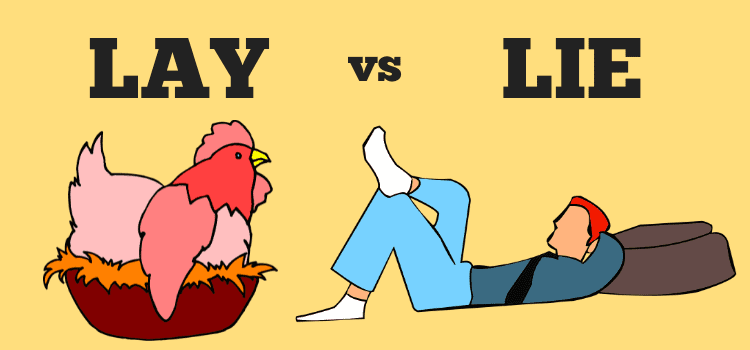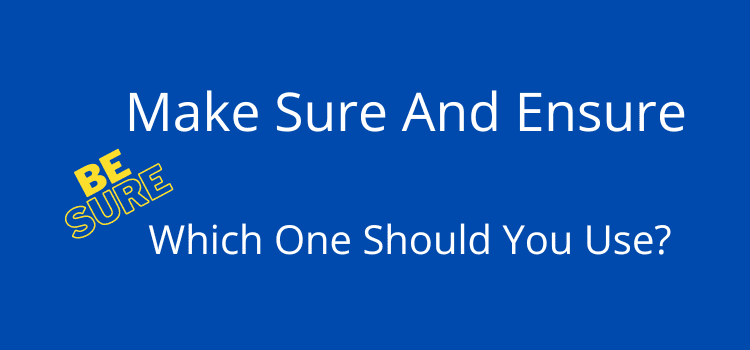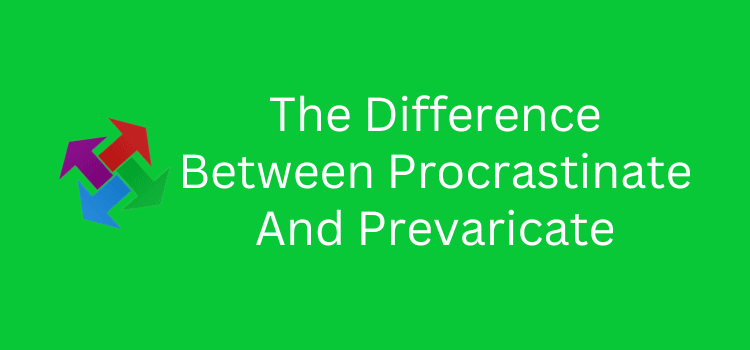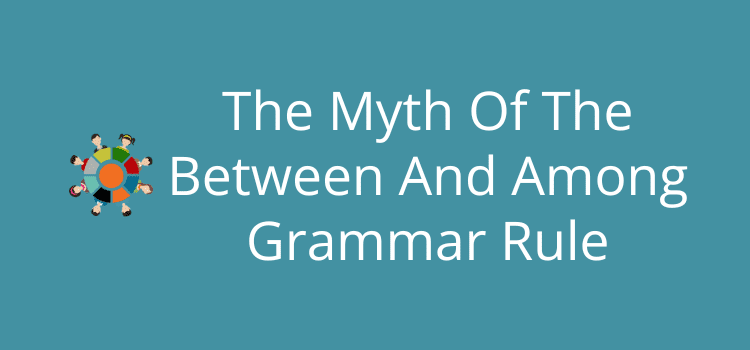
The two verbs lie vs. lay cause a lot of confusion, even for proficient English speakers.
What is the past tense of lay? What is the past tense of the verb lie?
But don’t confuse to lie, meaning not to tell the truth or to tell a falsehood. That’s a different story altogether.
The cause of the problem is in the grammar. Isn’t this so often the case in English?
What’s the difference between lay vs. lie?
Here’s the grammatical explanation first.
Then you can look at some examples that make the difference clear.
The main contrast between the verb lie and the verb lay is that one is an intransitive verb and the other is a transitive verb.
Lay is a transitive verb, while lie is an intransitive verb.
The easiest way to remember which verb is which is to think about the root of the word transitive, which is from transit.
It means to go across or passage from one place to another.
Therefore, a transitive verb moves the action of the verb across to an object.
But an intransitive verb action is not transferred to the object.
The action of the verb only applies to the subject of the sentence.
Let’s look at some simple examples to see how these two verbs work. It is a much easier way to recognize the difference.
Transitive and intransitive verbs
An intransitive verb does not need to have an object.
The baby is teething.
I work hard.
They laughed together.
A transitive verb requires an object.
Mike used to manage a restaurant.
Did you wash the dishes?
I can move my car.
With lay and lie
I lie down in the afternoon. (intransitive)
I lay the book on the table. (transitive)
A chicken lays eggs. (transitive)
We lie together on the beach. (intransitive)
With lie and lay, it’s relatively easy in the present tense. Use lie with no object and lay with an object.
Lay and lie and their confusing verb tense forms
Where these two verbs get a little more complex is when we change from the present to past tenses.

The reason for most of the confusion is that the past tense of lie is lay, which is also the present tense of lay.
English really has a way of making things tough for writers sometimes.
The present and past forms of to lay are easy and regular and they are lay, laid, and laid. That’s not too difficult to remember.
But for, to lie, the forms are easy to forget because they are so weirdly irregular. They are lie, lay, and lain. How often do you use or hear the past participle form lain?
Luckily, the present participle of both lie and lay are regular. Laying, lying.
In everyday use, it becomes easier if you try to keep remembering that lay requires a direct object and lie doesn’t.
Lie and lay examples
Lay means to put something down, often gently and always needs an object.
I laid the book on my bed.
She was laid low for a week by the flu.
Could you lay my new dress on my bed, please?
I laid the table with our best crockery.
Mary laid the keys on the counter.
My boss is laying down the law at work.
Lie means to assume a horizontal position, recline, or to rest and doesn’t require a direct object.
I think I’ll lie down quietly and see if it helps my headache.
He likes to lie on the couch when he reads.
She lay down for an hour this morning. (Past tense)
I had only lain down for a few minutes when the phone rang. (Past perfect tense)
He lay still for a moment. (Past tense)
Where’s Susan? She’s lying down because of her headache.
As you can see in the examples above, the same use applies when you use a phrasal verb form such as lie down vs. lay down.
But in the examples above, the lie down past tense is confusing because it is lay down.
It is easy to remember the difference, however. If there is an object, it is lay. If there is no object, it is lie.
Music is why we often learn to get lie and lay wrong
Bob Dylan and Eric Clapton are to blame.
Sorry Bob and Eric, but your songs should be Lie Lady Lie and Lie Down Sally.
Can you spot why some of these popular song titles use lay incorrectly?
Lay Lady Lay (incorrect)
Bob Dylan
Lay Down Sally (incorrect)
Eric Clapton
Lay Your Hands On Me (correct)
Bon Jovi
Now I Lay Thee Down (correct)
Machine Head
Pick ’em Up and Lay ’em Down (correct)
Toby Keith
Lover Lay Down (incorrect)
Dave Matthews Band
I Lay Down and Die (incorrect)
Bee Gees
Lay It Down (correct)
Kenny Rogers
Lay Your Money Down (correct)
Bread
Lay Back Daddy (incorrect)
Etta James
Lay Me Down Easy (correct)
Three Dog Night
Lay Another Log on the Fire (correct)
B.B. King
Lay Your Love on Me (correct)
Bad Company
Would You Lay With Me (incorrect)
Johnny Cash
Lay Down Beside Me (incorrect)
Kenny Rogers
Related reading: What’s the difference between further vs. farther?
Conclusion
Does it matter if you use lay and lie incorrectly? Of course, it does.
No writer in their right mind wants to make simple grammar or vocabulary mistakes.
If it is only a matter of people understanding when you speak, then maybe it’s not such a big issue.
But if you are a writer, you should take the time to iron out any knots you might have with these two confusing verbs.
Getting them right is much better than being attacked by the grammar police.
I’ll leave you with a little musical relaxation.
I expect after reading this article, your ears might now react to how Eric got the grammar of lie and lay all so very wrong in one of his most famous songs.
Well, it’s the blues, so who cares about the correct use of grammar?
Related reading: Card Shark And Card Sharp Are Both Correct In Writing





Three of my friends had a long argument in the pub last year, about whether one of them needed to say lie/lay/laid/lied in a particular context. I just sat back, doing the crossword and minding my own business, until they asked me for my two penn’orth. Oh, how we laughed when I told them they were ALL wrong.
One of the most helpful articles I’ve read in a long time. Thanks!!!
Another reason it’s easy for people to get confused (besides hearing others use the verbs either incorrectly or interchangeably all their lives) is that often, the direct objects of verbs like “lay” and what we used to call “understood”–that is, unstated. It would not be at all odd to have your mom ask “Did you wash?” before you ran off to school in the morning. She would have meant, “Did you wash your face” or “hands,” or even your whole body, as in “Did you take a bath?” But you’d have understood her question even though it was implicit. Similarly, some intransitive verbs can be used transitively, as in “I like to work puzzles.” An example of this kind of confusion for lie/lay might be the point that in “She will lay down the law,” the actual verb is “lay down”; English has a lot of these compounds. “Down” is a preposition and can’t, in itself, be the direct object of a transitive verb. It’s not a far journey to “I’m going to lay down in the sun for a while.”
Sorry! I love this stuff!
Thank you, this was very helpful. I always get lie and lay wrong.
LIE versus LAY I learned the correct use of these two verberbs I was taught the phonetics of both in a course many years ago.